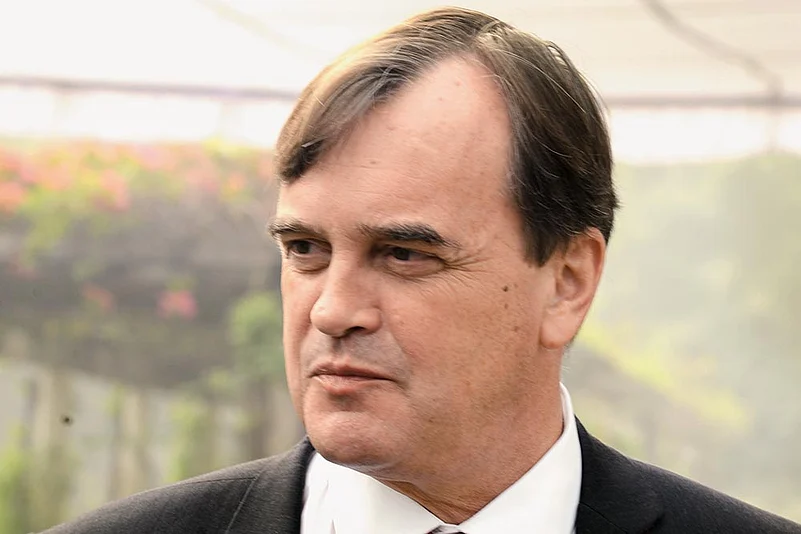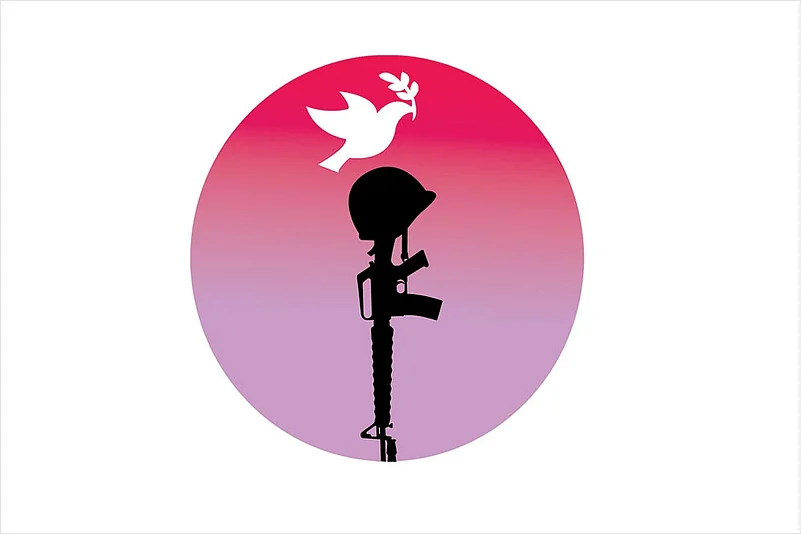On November 11 and the days leading up to it, we celebrated in Delhi and around India the moment at which the armistice was signed that ended World War 1. Over the past 35 years, I have done the same at Commonwealth War Grave cemeteries around the world, commemorating those who gave their lives in war, including in what was then the bloodiest and first ‘world’ war. These graveyards are proudly and impeccably maintained oases of peace, in stark contrast with the din of battle.
World War One Diary
Diary by British High Commissioner to India on WWI commemoration ceremony.

At the end of the ceremony we recite the Kohima epitaph: When you go home, tell them of us and say, ‘For your tomorrow, we gave our today’. However, I could not help thinking back to some yesterdays. I fear the cemetery in which I stood in Damascus 32 years ago may now have returned to a battlefield. I remember, still with incomprehension, the one in Benghazi—whose gravestones had been hammered to pieces by an Islamist militia, possibly emboldened after toppling Qaddafi and unable to tolerate the sight of a cross. Yet, along the North African coast at El Alamein, where the tide of the Second World War turned in 1942, veterans who had fought each other would stand united in peace before the sun setting over a desert that 60 years earlier had screamed with shells and whizzbangs. As we say every year: at the going down of the sun, and in the morning, we shall remember them.
The Indian Army contributed over a million volunteers to WW1. Over 70,000 died, 13,000 received gallantry medals and 11 the Victoria Cross, the highest British award for bra-very. They fought in 50 countries.? If you fly from Delhi to London, every country you pass over was visited by soldiers from the Indian Army. Without their support, the Allied forces in Europe would have collapsed early in the war. Their contribution in West Asia is celebrated by the Teen Murti memorial. A former Indian officer told me that, six years ago, that memorial would not have been regarded as a WW1 memorial. Today we are able to commemorate and express gratitude for the courage and sacrifices made by the Indian Army. This year, the poppies in our wreaths were made of khadi and we wore on our lapels the Indian marigold beside the blood-red poppy which grew on the European battlefields where so much blood was shed. The 100 years has given us a better perspective.

My great-grandfather (H.H. Asquith) was prime minister of Britain when we issued the ultimatum to Germany to withdraw from Belgium. The Germans failed to respond and by midnight, Berlin time, on August 4, 1914, we were at war.? H.H. faced resignations from his Cabinet even then. The mood on the street was different.? On his way back to Downing Street the evening before, he remarked with distaste that “war or anything that seems likely to lead to war is always popular with the London mob.” He recalled a remark by one of his predecessors, Robert Walpole: “now they are ringing their bells; in a few weeks they’ll be wringing their hands.” His eldest son Raymond, my grandfather, enlisted. And two years later, on September 15, 1916, Raymond was killed at the Somme, leading his men over the top.? My father, Raymond’s only son, was five months old.? They never saw each other.
The week before Raymond died, H.H. had visited him at the battlefield. His cabinet secretary describes jolting up the shell-smitten ‘street’ of a French town where “literally not one stone (was) left on another”. Three successive German howitzer shells exploded between 50 and 100 yards on either side. I was ambassador in Baghdad when Tony Blair came on his last visit as PM in May 2007. Thanks to a last-minute change in the programme, which delayed us by 10 minutes, we escaped a large rocket which landed with wholly uncharacteristic precision of timing and targeting on exactly the spot where Blair would have stepped out of my car to visit embassy staff.?
Commemorations throw up occasions for making connections. We made a connection in the Delhi graveyard between two grandsons of Indian officers. Each had photographs of their forebears standing together in the full uniform of the 31st Duke of Connaught’s Lancers, yet neither grandson had ever before met the other. Many today have forgotten (or never knew) that in the closing months of WW1, two million soldiers of the British Army fought under French command for the first time. Marshal Foch was the French general. He said after the armistice: “I am conscious of having served England as I served my country.” Those words are carved in stone beneath his statue near Victoria Station in London. We handed over my garden diaries of the Indian regiments that had fought in the war. As I said later that evening, time has the ability to turn all to dust; that reinforces the importance of remembrance—not only sacrifice, but also the value of peace.

























